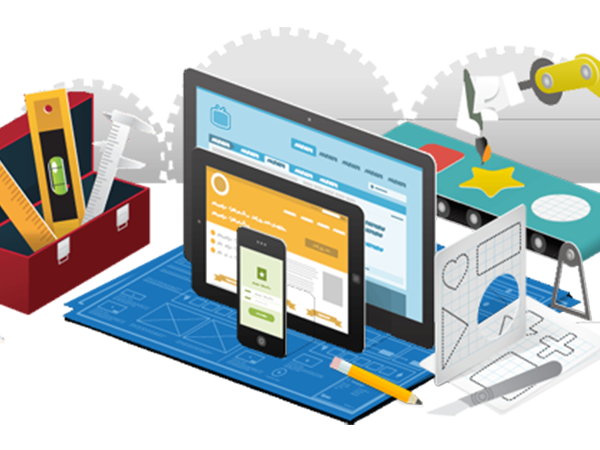Having an online business is a lot of work, and you need a companion that can help you manage your contacts. Here fall down a choice of reliable Customer Relationship Management (CRM) this is vital in keeping your business organized and running smoothly. A long-view CRM strategy is key, but when it comes down to choosing a software service, there are so many to choose from that it can be tough to know where to begin.
When selecting the perfect CRM software system for you, the choices include a robust CRM software solution, a simple CRM designed for a small business or a free version to fit your budget. There are tons of list you can choose from, but it lacks the right information and not truly helpful for making a decision that is relevant to you.
To help you choose we prepare the most popular CRMs below:
1. Saleforce
Pros:
Customizable Dashboard: The first thing you will see once you log in in your CRM is the dashboard; it gives you a huge range of report widgets, allowing you to have an overall preview on how your company is performing. You can check out real time summaries of customer data and other relevant statistics.
Easy to Navigate Software: The flexibility and usability of the software is good. A simple layout of the navigational bar is perfect. The tabs are well organized and categorized, such as home, accounts, contacts, leads, opportunities, campaigns, forecast files, among others.
Social Capabilities: The tool’s social media function and news feed operate very much like Facebook, thus making it very familiar as well as easy to use for users. You can quickly browse the news feed and immediately post status updates, share links, and upload files right from the dashboard.
Cons:
Complexity: Its software’s greatest strength becomes its greatest weakness as well, especially for those who have micro businesses that don’t need the overwhelming tools and plugins. This case specially affects companies that may not have dedicated sales staff or already possess their special lead generation and sales solution that perfectly work for them.
Pricing: That pricing might not be an issue for big corporate businesses, but for small ones it may be an issue. Although the helpdesk solution offers affordable prices even for small businesses, the problem may happen when it comes customizing the software and if you prefer using third-party solutions.
Tricky Reporting: When using Salesforce, sometimes reporting even just the basic information and data can be trickiy. Generating reports, compared with the rest of the helpdesk solution’s features, is not as user friendly.
2. Sugar CRM
Pros:
Extensibility/Flexibility: The extensibility of the framework is that you can customize the application whether adding some features to the stock application or adding some customize features. Each custom features can be packaged and distributed as SugarApplication.
No Restriction: Having Sugar CRM as an open source application. Developers have the full control of the source code. That makes it easier to render some changes and determine the best method to implement.
Active Project: This is can be a pros and cons at the same time. SugarCRM is evolving, growing and adding functionality to the framework each release.
Cons:
Documentation: The idea of starting with SugarCRM maybe a trial and error. But there are no comprehensive guides or tutorials on how to get started with SugarCRM properly.
Time Consuming: Learning and mastering the vast framework takes time to firmly grasp the concept.
Many Ways in Performing Operation: Do to the flexibility and extensibility of SugarCRM that are many ways to perform the same operation and without a best practices guide as a developer you are free to make your own choices on how to implement your particular solution.
3. Capsule CRM
Pros:
User Friendly: It is very easy to use. This CRM are good for new to CRM software, you can just jump in and learn as you go. It has the very basic features and more dynamic features.
Robust System: Capsule has a very robust contact management system. It allows for the generation of very specific lists within existing contacts. There is a tagging feature that is great for further organizing contacts.
Simple Workflow: Having a simple workflow encourages you and the sales guy to use the track features efficiently. It provides custom sets of tasks that are created as soon as you start an opportunity or a case.
Cons:
Lacks of Feature: Capsule lacks feature that grant the user to list an individual as being a part of more than one company.
Lacks of Info and Tutorials: The same as Sugar CRM, this CRM also lacks proper documentation and tutorials on the basic how to start and utilize the software fully.
Limited ability to integrate apps outside of Google and Mailchimp
Emails outside of Gmail have to be BCC’d to be added to customer communication history
4. Nimble
Pros:
Flexibility: The Nimble platform offers the flexibility by combining all your social, tasks, email, activities, follow-up, and so on into one major application that is geared into bringing better engagement with your esteemed contacts. In other words, the above software helps users to keep track of tasks, deals, and tasks at a glance
Customer Communication: It can be used to identify people in connecting with your network. Thus, users can communicate freely, quickly, and easily.
Targeted Leads: It helps users to engage and find targeted leads found on your social networks.
Cons:
Frequent Errors: Mix-ups in contact management are frequent, potentially leading you to accounts of the wrong people. And the $15 price doesn’t include features like Google Analytics Integration.
Wrong Social Accounts: One of the major drawbacks using nimble is that you can get wrong social accounts that can be reflected in your contacts.
Contact Structure: Imported contacts come with messy structures and require plenty of organizations
5. Microsoft Dynamics CRM
Simplicity: Dynamics CRM, as you would expect from a Microsoft product, has a very simple user look and feel especially for those familiar with SharePoint or Office, the UI is genuinely uncluttered and easy to use, meaning that adoption training and familiarization should be at a minimum.
Product of Microsoft: Since it under Microsoft you will not think twice in availing their services. Microsoft isn’t going to disappear overnight leaving anyone stranded with an unsupported product. They may of course change their roadmap but that’s a very different con all by itself. Also it has continuous customer support and service.
Cons:
Not Well Optimized: Dynamics has of course been optimized for compatibility with MS products and performance does tend to take a slight hit if anything else is used.
Cloud Functionality: Since Dynamics is not a cloud base CRM. It needs a catching up to the other CRM software that is cloud base since the beginning. As of now Dynamics are just adding some social functionality recently. At its heart Microsoft are now a middle aged blue-chip fighting hard to play catch up with the new kids on the block.
Sophistication: Many small to medium enterprises the sales process is not as slick and as defined as Dynamics needs it to be to function well. This can involve having to create predefined processes before implementing Dynamics.





